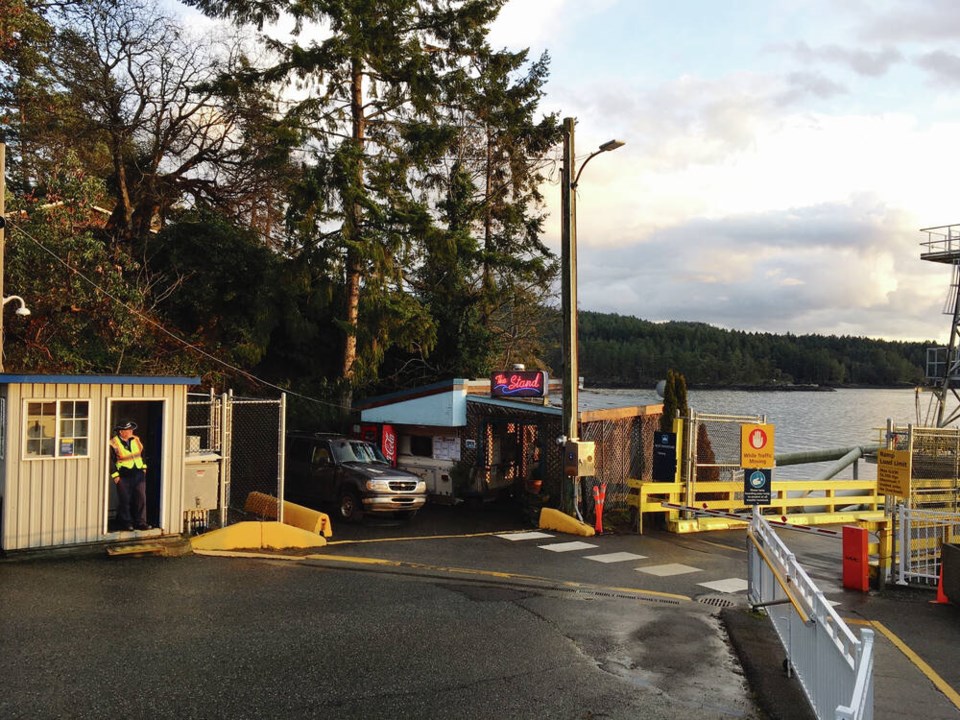B.C. Ferries has finished installing Wi-Fi service at 14 terminals, including many of those on the Gulf Islands and at Nanaimo Harbour.
The company said 21 of its terminals now have access to Wi-Fi in its buildings, lounges, vehicle staging areas and parking lots.
The $1.5-million project was funded by a grant from the Ministry of Citizens’ Services. Access to free Wi-Fi allows travellers to connect to the internet for work, leisure or general trip information while waiting for their ferry or arriving at a destination, B.C. Ferries said.
The operator cautioned travellers that it does not ask for credit-card details or personal information to use Wi-Fi networks at terminals or on board vessels. It said Wi-Fi users should consider any unlocked Wi-Fi network claiming to be “bcferries” and asking for credit card or personal information to be malicious.
The recently added Wi-Fi terminals include:
• Cormorant Island (Alert Bay)
• Cortes Island (Whaletown)
• Denman Island East (Gravelly Bay)
• Gabriola Island (Descano Bay)
• Galiano Island (Sturdies Bay)
• Mayne Island (Village Bay)
• Nanaimo (Nanaimo Harbour)
• Pender Island (Otter Bay)
• Port Hardy (Bear Cove)
• Quadra Island (Heriot Bay)
• Salt Spring Island (Long Harbour)
• Salt Spring Island (Vesuvius Bay)
• Salt Spring Island (Lyall Harbour)
• Vancouver Island (Buckley Bay)
B.C. Ferries said it is working with the province on extending free Wi-Fi to more terminals, but has no plans to re-introduce Internet access aboard any vessels.
The company said the existing Wi-Fi service runs on a ship-to-shore network using wireless network radios, which would need to be upgraded and certified under new, more strict radio frequency regulations.
“These newer radio devices have a large reduction in the amount of power we can apply to network radios, which would further reduce the reliability and quality of on-board Wi-Fi,” it said.
Installing the new devices also comes with a high cost that would have to be passed on to customers, it said.
Since the introduction of Wi-Fi in 2010, the number of passengers on a ferry accessing it has risen from about 40 to 50 users to more than 900, which has resulted in connectivity issues, B.C. Ferries said.
B.C. Ferries, which has 47 terminals, installed Wi-Fi services at the Swartz Bay, Tsawwassen, Departure Bay, Horseshoe Bay, Duke Point, Langdale and Saltery Bay terminals between 2010 and 2012.



